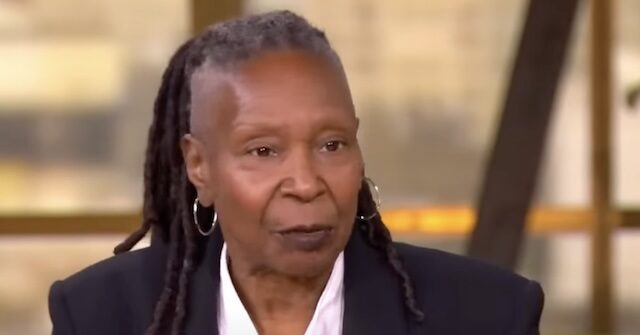On a recent episode of ABC’s “The View,” Whoopi Goldberg made a notable remark about Elon Musk, stating that he resembles “the actual vice president” due to his influence and decision-making in the current political landscape. This comment sparked a discussion among the co-hosts regarding the evolving dynamics of social media platforms, particularly focusing on how these platforms have fueled political polarization. Alyssa Farah Griffin expressed concerns about the challenges of navigating information on social media, particularly the need for fact-checking and verification when sharing and consuming news. She pointed out her struggle with being influenced by various social media feeds, highlighting how people often retreat into their own echo chambers based on their political affiliations.
Goldberg responded to Griffin’s observation by noting the toxicity present in political discourse today. She suggested that the harsh and aggressive interactions among differing political views are driving individuals away from productive dialogue. She emphasized that name-calling and personal attacks have become commonplace, making it difficult for people to engage respectfully with one another. This divisiveness encompasses not just Democrats but also Republicans, who may also feel marginalized or attacked for their viewpoints, leading to a general withdrawal from open conversation.
In this context, Goldberg’s assertion about Musk was based on her belief that he wields significant influence in political matters, akin to that of a vice president. She cited Musk’s actions and decisions on social media platforms, particularly X (formerly Twitter), as evidence of his substantial sway over public discourse. This perspective reflects a growing perception among some that social media leaders are shaping not only communication channels but also the political narrative of the country.
Goldberg specifically referred to JD Vance, hinting that while he holds political office, Musk’s role and impact might overshadow that of traditional political figures. This assertion underscores a belief that the power dynamics in politics are shifting, with business magnates like Musk playing critical roles in steering public opinions and decisions. The co-hosts’ discussion highlights the reality that political influence in modern society increasingly stems from non-political entities, creating a complex interplay between business interests and governance.
The conversation pointed out the challenge of engaging with individuals across the political spectrum in a fragmented landscape characterized by social media divides. Both co-hosts acknowledged the difficulty of bridging these divides, where followers tend to stick to like-minded voices, thereby reinforcing their preexisting beliefs rather than seeking common ground. This scenario exacerbates tensions in an already polarized environment, making it all the more crucial for individuals to seek out objective facts and engage in constructive dialogue rather than fall prey to misinformation or peer pressure.
In conclusion, Whoopi Goldberg’s comments about Elon Musk reflect a broader concern regarding the role of influential figures in today’s political discourse and the challenges presented by social media echo chambers. The need for reliable information and respectful dialogue stands out as necessary in addressing political polarization. As society grapples with these challenges, individuals must strive to communicate across divides, fact-check their information, and engage meaningfully with differing opinions to foster a healthier democratic environment.

